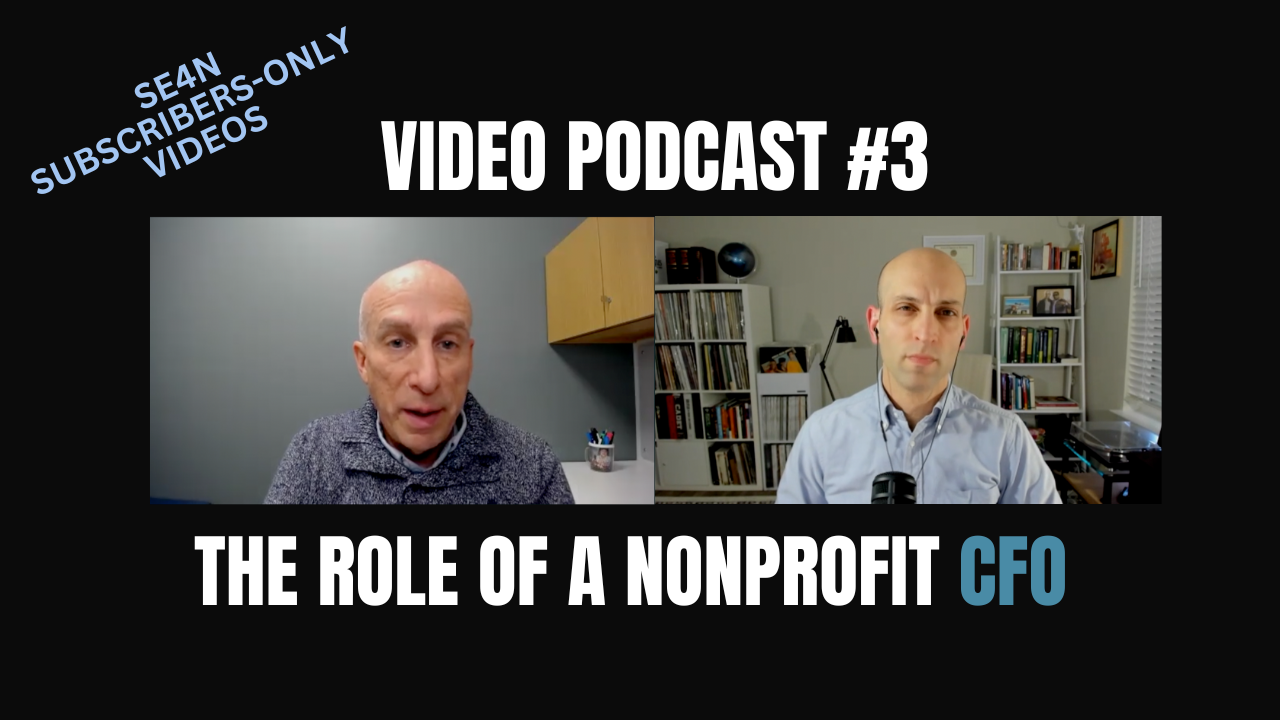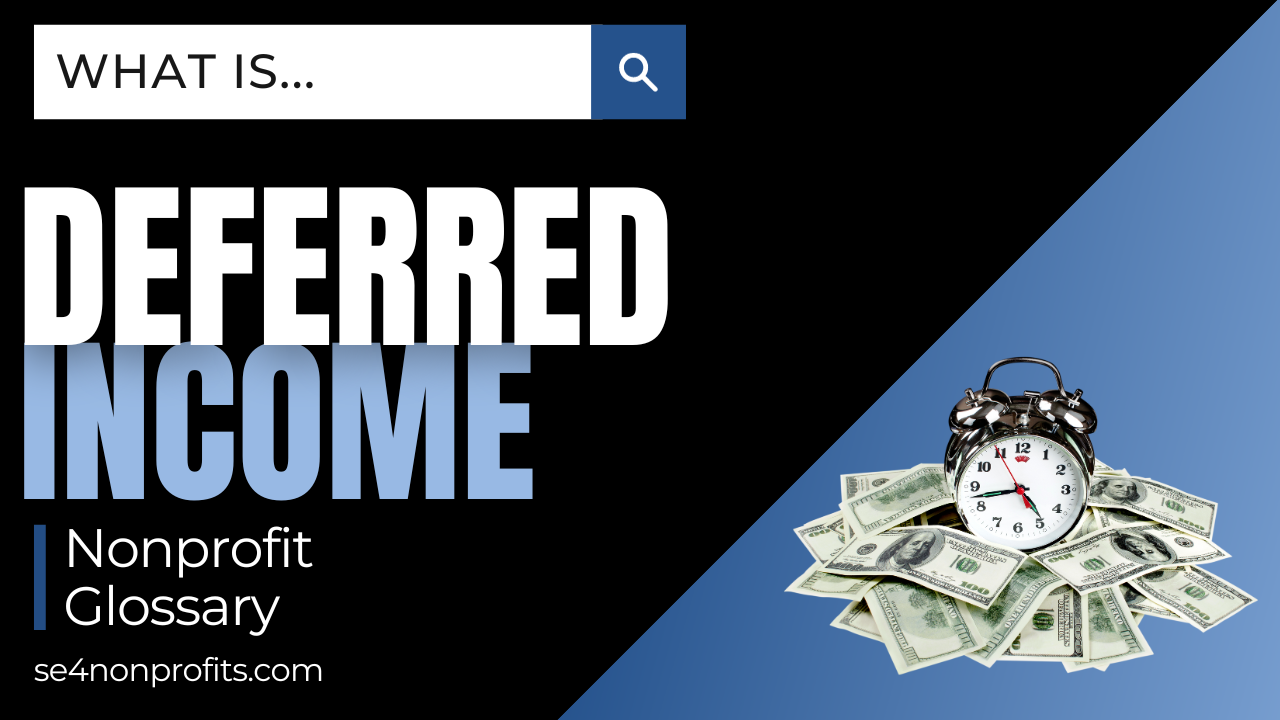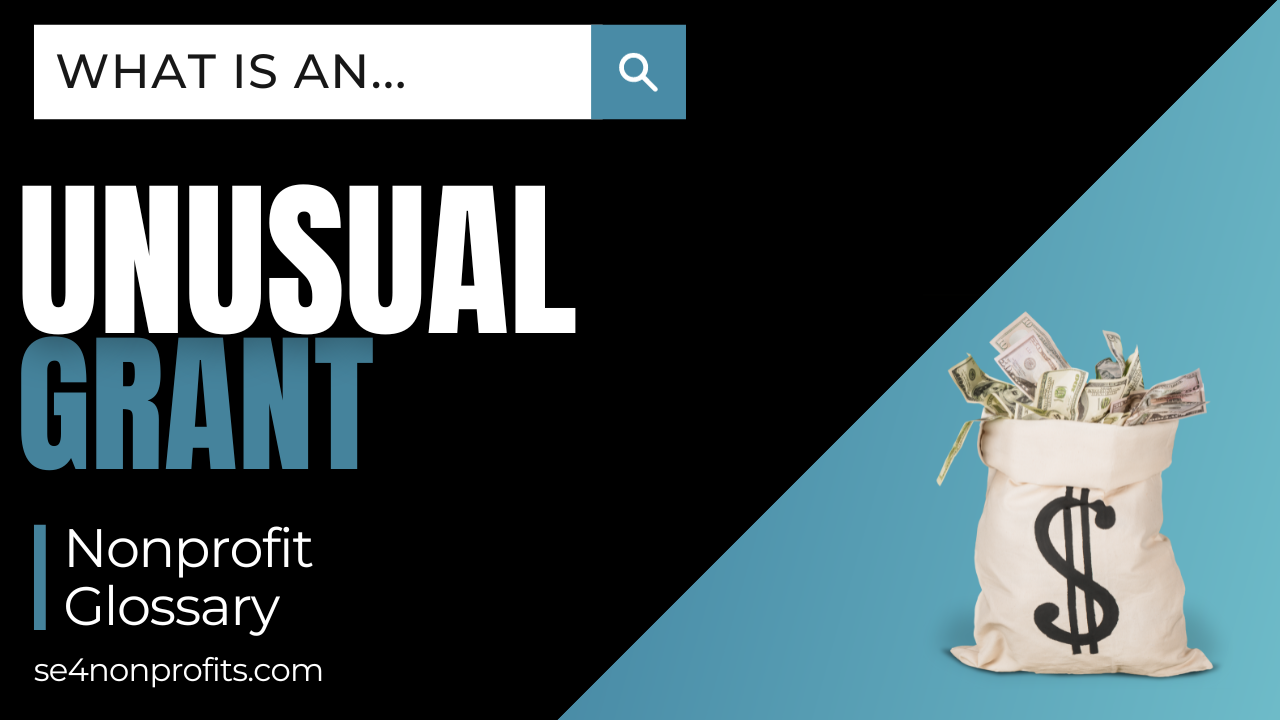
Blog.
Most Recent Posts

VIDEO PODCAST: The Role of a Nonprofit CFO
Mike and Ben discuss the importance of CFOs taking on a broader role in order for nonprofit organizations to thrive and reach their fullest potential as well as the challenge of balancing their traditional finance duties with their role as a strategic thought leader within the organization. Additionally, Mike and Ben discuss tactics for navigating this balance through improving the integration of the CFO within the C-Suite, more effective financial messaging and communications, and having more strategic financial discussions.

Why Gift Acceptance Policies are Important and Must Be Periodically Reviewed and Updated
A gift acceptance policy fills many important roles for a nonprofit organization, including acting as a set of guidelines for fundraising efforts, a tool for risk management, and a protector of the organization’s good governance practices, mission, ethics, reputation, and culture. These characteristics are naturally sensitive to unexpected change and evolving economic conditions, so regularly reviewing and updating your organization’s gift acceptance policy is essential.
![TEMPLATE: Donor Acknowledgement Letters [SUBSCRIBERS-ONLY]](https://images.squarespace-cdn.com/content/v1/5e6ccadfb4659c1d51df14d5/f328f5a7-6c2b-4973-a39b-d3f8e02bb557/mediamodifier-S3Lig53867M-unsplash.jpg)
TEMPLATE: Donor Acknowledgement Letters [SUBSCRIBERS-ONLY]
These donor acknowledgment letter templates provides sample language that generally satisfies basic IRS requirements for the most common donation scenarios, including cash contributions, non-cash contributions, as well as cash and non-cash gifts that are treated as quid pro quo contributions.

Five Nonprofit Bylaws Issues That Are Often Overlooked
All nonprofit organizations should regularly review and assess their Bylaws to ensure this key governing document complies with the law and is optimally aligned with the organization’s governance needs and operational practices. The following are five common Bylaws oversights to look for when doing your organization’s next Bylaws review.

VIDEO: What is Deferred Income? | Nonprofit Glossary
SE4N's A. Michael Gellman provides a short summary of the definition of deferred income, why deferred income is a liability on a nonprofit organization’s balance sheet (statement of financial position), how deferred income impacts an organization’s operations and cash flow, and more.

Establishing a Form 990 Review and Approval Process
Many nonprofit organizations treat the annual Form 990 filing like a sprint at the end of a long 5K race. After the year is completed and the audited financial statements finally appear, the rush to get the Form 990 assembled and filed too often becomes a hectic “mad dash.” Formalizing the process for review and final approval of the Form 990 before filing will help to avoid mistakes, better reflect current conditions, and show the organization in the best possible light.

VIDEO PODCAST: Common Form 1099 Questions from Nonprofits
Mike and Ben discuss the basics of the Form 1099 rules and address some questions that are frequently asked by nonprofit organizations related to the Form 1099, including whether nonprofits are required to comply with the Form 1099 rules, whether a 1099 is required when the payee is also a nonprofit organization, whether a 1099 is required when reimbursing Board members for expenses, the importance of timely collecting Forms W-9 and avoiding 1099 mistakes, and more.

Q&A #161 – Can a foreign nonprofit organization qualify for 501(c)(3) status?
Charities formed outside of the United States may qualify for 501(c)(3) status so long as they satisfy the requirements that apply to 501(c)(3) organizations under U.S. law. This status makes it easier for foreign organizations to receive grants from U.S. private foundations and mitigate or avoid U.S. income tax on revenue received from U.S. sources. However, donors generally cannot use the charitable deduction under U.S. tax law for contributions made to organizations formed outside of the U.S., so many foreign organizations form affiliated “friends of” organizations in the U.S. for this reason.
![Seven Key Steps for Managing Nonprofit Corporate Governance Disputes [SUBSCRIBERS-ONLY]](https://images.squarespace-cdn.com/content/v1/5e6ccadfb4659c1d51df14d5/1684850686845-BLMLI9MTHUVKFV4FHBS9/pexels-alex-neri-6721364.jpg)
Seven Key Steps for Managing Nonprofit Corporate Governance Disputes [SUBSCRIBERS-ONLY]
For most nonprofit organizations, it is a rare occurrence for internal corporate governance disputes to escalate to the point of litigation. However, court cases are sometimes unavoidable. A notable D.C. Court of Appeals decision addressed several important issues related to corporate governance challenges and illustrated some key steps nonprofits can take to better manage these disputes.

The Best Nonprofit CFOs Go Beyond the Numbers
Chief financial officers (CFOs) occupy a unique position of leadership within a nonprofit organization’s senior management team. Often, CFOs are viewed only as protectors of financial assets, immersed in the numbers and devoid of strategic thought. CFOs must work harder to shed these images and venture beyond the numbers to be thought leaders, advocates for strategic change, and catalysts for innovation to help organizations grow and advance their mission.

VIDEO PODCAST: The Downsides of Board “Give or Get” Policies
Mike and Ben discuss Board giving policies, including why nonprofit organizations have them, the components of a formal Board giving policy, and the often overlooked complications and negative consequences of Board giving policies with a "give or get" option.

Q&A #160 – Are nonprofit organizations subject to the Fair Labor Standards Act (FLSA)?
Many nonprofits are technically not subject to federal Fair Labor Standards Act (“FLSA”) wage and hour law requirements due to rules that limit FLSA applicability to organizations that meet certain “enterprise coverage” or “individual coverage” thresholds. However, this is often a moot point since nonprofits are usually subject to state wage and hour laws, many of which are built upon federal FLSA definitions and exemptions. Consequently, most nonprofits must monitor changes in federal FLSA rules carefully as these may have state law compliance implications.

VIDEO: What is an Unusual Grant? | Nonprofit Glossary
SE4N's Benjamin Takis provides a short summary of the term “unusual grant” and how this concept affects a 501(c)(3) nonprofit organization’s ability to pass the public support tests on Form 990 Schedule A, and avoid being tipped into private foundation status.

Why and How Nonprofits Use Limited Liability Companies (LLCs)
The Limited Liability Company (LLC) is a flexible and widely used entity structure in virtually every industry, from one-person businesses to some of the largest companies in the world. LLCs can also be useful as a subsidiary or joint venture vehicle for certain nonprofit programs or activities, but the use of single-member and multi-member LLCs in a nonprofit context is often misunderstood.

Q&A #159 – Should a nonprofit hire an investment advisor?
While nonprofit organizations are not legally required to use a professional investment advisor to help guide the organization with their investment management, most nonprofits correctly choose to work with a professional investment advisor. Delegating management of the investment portfolio to Board members is not a wise choice because this unnecessarily exposes the organization and its Board members to fiduciary risks related to potential compliance failures and performance shortfalls.